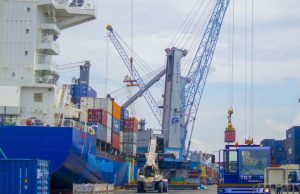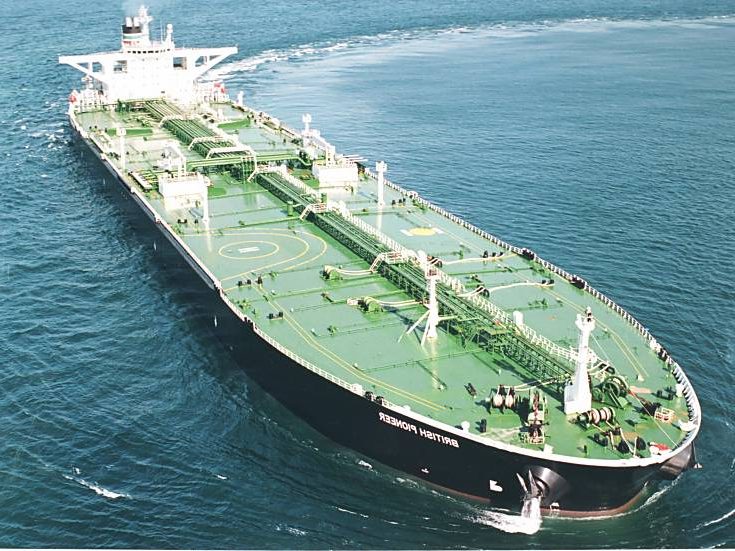– Togo ahead of Nigeria Cargo thorough put
Vincent Toritseju
Lagos — Nigerian ports have been classified among the worst performing ports globally, such that even the neighboring port in the Republic of Togo has emerged ahead, recording a total of cargo thorough put of 1.7million metric tons as against Nigeria’s 1.5 million metric tons in 2020.

The Executive Secretary of the Nigerian Shippers Council, NSC, Mr. Emmanuel Jime made the disclosure while speaking at the just concluded Port User’s conference themed ‘Retooling the Maritime Sector for stronger economic growth.
“The Nigerian Port is currently classified among the worst ports in the world due to challenges such as delay in import/export processes, traffic congestion poor access roads, safety and security concerns infrastructure deficits and logistics shortcomings, policy and regulatory inconsistencies overlapping functions and duplication of roles among the Ministries, Departments and Agencies, MDAs operating at the port’s high incidence of infractions by the MDAs.
He said that Nigeria has the potential to own and operate the biggest and most efficient ports in Africa because of its advantageous geographic location and a population of more than 200 million people.
Jime, however, noted that the industry is limited by numerous challenges ranging from infrastructural deficit, corruption, poor policy implementation amongst other challenges.
“Nigeria’s container throughput has been on an average of 1, 484, 000 TEU from December 2008 to 2020.
“These activities in volumes are worth billions of dollars. However, due to a number of obvious challenges in the industry, Nigeria is unable to harness her full potentials in the sector. In this regard, it is important to note that Nigeria needs an effective maritime transportation to rake in revenue required for economic and infrastructure development.
“Maritime industry plays an important role in the economy of Nations of the world. It is worthy of note that shipping and port operations stands out as the most important boost to a nation’s economic growth and development. Nigeria being a coastal state possesses great potentials to generate huge revenue from both local and international transportation of persons and good by water.
“Approximately 80% of the shipping business done in the coast of West Africa is done in Nigeria. Over the years ship calls to Nigeria has improved with increased tonnage of about 140 million and estimated payment of above USD7.5 billion. According to available data, a total of 3, 972 vessels with Gross Registered Tonnage of 125,133,912 metric tons were received in Nigerian Ports, though this is low when compared with the 2019 records of 4, 251 vessels with Gross Registered Tonnage of 138, 577, 463 metric tons.
“Sadly, Nigerian participation was zero, as most vessels are foreign owned vessels,” he said.
Industry experts believe that 90 percent of the cargo that pass through the Cotonue port find ways into Nigeria as the neighbouring port continues to be more attractive in terms of efficiency and cost.
Also, according to available data, Nigeria’s crude exportation in year 2020 was about one million barrel per day with cumulative worth of USD 30 billion. Sadly, only foreign owned vessels benefited from the freight cost of about USD2.25 billion for lifting the country’s crude.
“On the whole, the importance of maritime transportation to Nigeria’s economy can be measured through its contribution to the Nation’s Annual Gross Domestic Product. The sector could have direct, indirect or induced impact on the economy.
“The sector serves as an input into every other industry in the National economy.
“The sector accounts for about 95% of the movement of Nigeria’s international trade. Findings revealed that 70% of industrial activities in Nigeria are site around port cities of Lagos, Warri, Port Harcourt and Calabar.
“The sector plays a fundamental role in the exploitation, distribution and export of resources, which further aids in the reduction of spatial poverty and inequality.
“Unfortunately, according to the International Monetary Fund (IMF) Economic and Country report, Nigeria is the largest economy in Africa, yet it trails behind many smaller economies in Africa in terms of ports and maritime activities.
“No doubt, this situation has created avenues for gross mis-allocation of resources and imposes tremendous cost to the economy; distorting development policies and undermining confidence of foreign and local port users in the Nigerian Port operations,” Jime further disclosed.
Follow us on twitter



